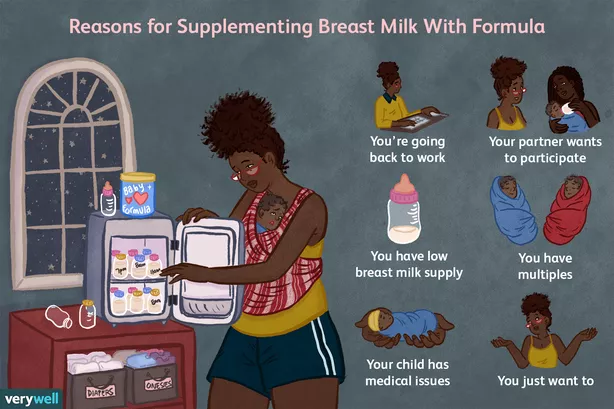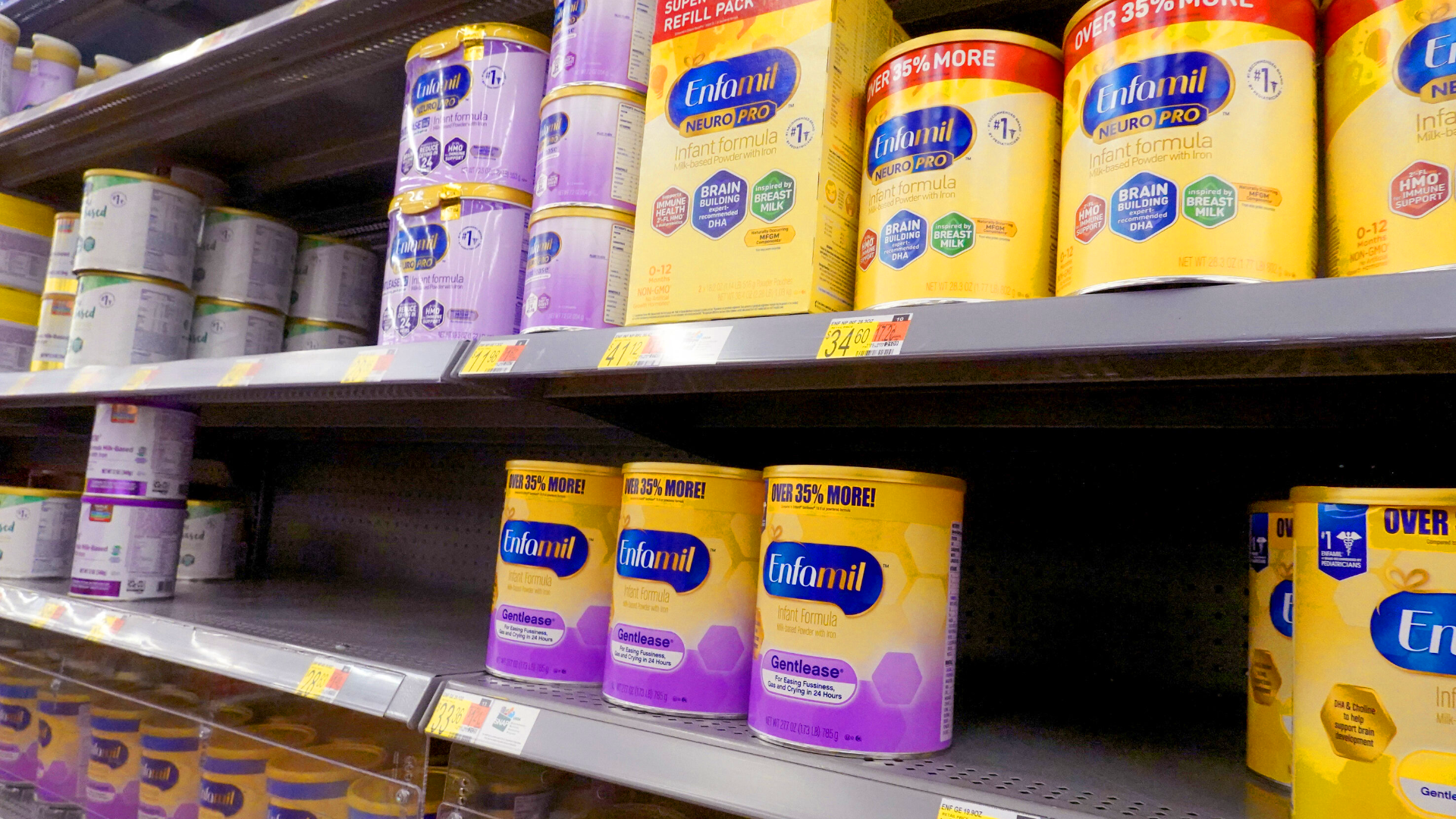What caused the baby formula shortage?
A trifecta of conditions has come together to create this crisis, with the primary problems being contamination inside a major factory and ongoing supply chain issues due to the pandemic.
In February, an Abbott factory responsible for producing several brands of formula was shut down over customer complaints about contamination. Investigations found batches of contaminated formula were leading to bacterial infections which caused two infant deaths in America.
The factory remaining shut until mid-May combined with recalled bottles of formula, supply chain issues, and nationwide labour shortages has resulted in a 40 percent shortage of baby formula stocks.
At present, there are also no adequate substitutions or alternatives that provide the same nutrients as baby formula or breast milk, which contain the necessary level of electrolytes, protein, vitamins, and minerals small children need to survive.
The level of protein in cow’s milk is too high and can cause a burden on infant’s kidneys, while almond and soy milks aren’t nutritionally dense enough to meet babies growing needs.

How is this disproportionately affecting certain groups?
The baby formula shortage points to a much wider issue with the US healthcare system, which favours the wealthy and fails to provide basic, but vital services to marginalised groups.
Consider that Black, Latino, Asian, and Native American families are more likely to report using formula to feed their babies in the first three months of their lives than white parents are.
Contributing to this could be the fact that socioeconomically disadvantaged groups are the least likely to be granted paid maternity leave by employers or to have a safe, private place to pump breastmilk for their children.
But online narratives have been quick to blame parents for not being prepared. Because we’ve all seen how stockpiling essential goods went so well at the start of the pandemic, right?
Beyond vilifying their negligence towards hoarding doomsday supplies, many have blamed mothers for not breastfeeding – something we’ve already mentioned becomes less and less common after the first few days of a child’s life.
Contrary to popular belief, breastfeeding is not free. It requires supplies to help with the process (think prenatal vitamins, breast pumps, nursing bras, milk storage bags, and more), all of which are estimated to cost families around $950 a year.
Compare this with formula feeding which costs around $1100 a year – never mind the physical, emotional, and mental strains that breastfeeding entails – and there’s no need to ostracise families for choosing or being forced into a more practical, money, and time-saving option.
Not to mention, many parents switch to formula out of necessity and as a result of medical condition that prevents them from being able to breastfeed successfully. This is, of course, at no fault to the parent.
All in all, supplementing with formula is a healthy and safe option for parents who are unable to breastfeed for a myriad of reasons. But with supplies limited, those who need it most – for whatever reason – are being disproportionately affected.

What are American policymakers doing about it?
Today, news broke that the closed Abbott factory in Michigan has been given the green light to restart production processes.
The USFDA is also working with other manufacturers across the nation to increase their output to combat the shortage. It is also exploring its options to purchase supplies from foreign manufacturers.
Good news noted, this lengthy shortage of baby formula should be a huge lesson for those who have the power to enforce social safety policies that would help the US deal with (or prevent) a future similar situation.
When a major formula manufacturer gets wind of an impending supply cut, there is no US law which requires the company to notify the US federal government. If such policy is put in place, it could ensure that public officials are better equipped to deal with it.
President Biden has assured citizens that ‘significantly more formula’ will be on shelves ‘in a matter of weeks or less’. However, it is becoming clear that allowing a single factories to have a monopoly over essential items is highly risky in the long-term.






















